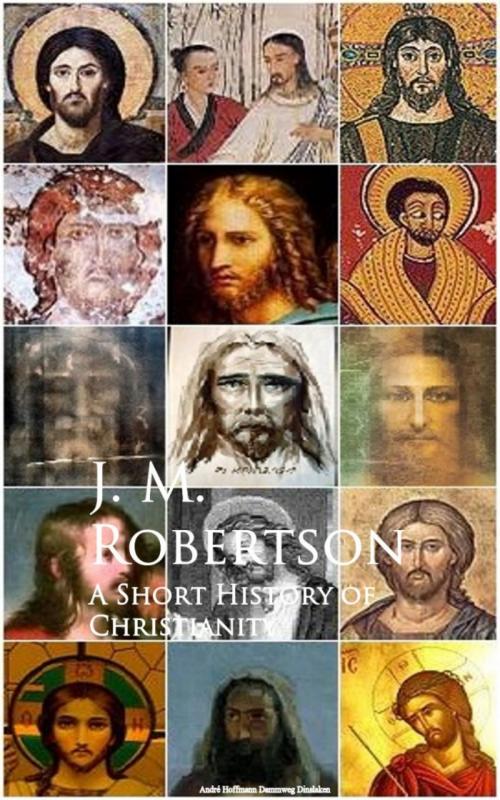A Short History of Christianity
Nonfiction, Religion & Spirituality, Christianity, Church, Church History| Author: | J. M. Robertson | ISBN: | 9783736415270 |
| Publisher: | anboco | Publication: | September 28, 2016 |
| Imprint: | Language: | English |
| Author: | J. M. Robertson |
| ISBN: | 9783736415270 |
| Publisher: | anboco |
| Publication: | September 28, 2016 |
| Imprint: | |
| Language: | English |
An attempt to write the history of Christianity in the space of an average novel is so obviously open to objections that, instead of trying to parry them, I will merely state what seems to me the possible compensation of brevity in such a matter. It is or may be conducive to total comprehension, to coherence of judgment, and in a measure even to the understanding of details. A distinguished expert in historical and philological research has avowed that specialists sometimes get their most illuminating ideas from a haphazard glance into a popular and condensed presentment of their own subject. Without hoping so to help the experts, I humbly conceive that the present conspectus of Christian history may do an occasional service even to an opponent by bringing out a clear issue. Writers of a different way of thinking have done as much for me. The primary difficulty is of course the problem of origins. In my treatment of this problem, going as I do beyond the concessions of the most advanced professional scholars, I cannot expect much acquiescence for the present. It must here suffice to say, first, that the data and the argument, insofar as they are not fully set forth in the following pages, have been presented in the larger work entitled Christianity and Mythology,1 or in the quarters mentioned in the Synopsis of Literature appended to this volume; and, secondly, to urge that opponents should read the study on the Gospels by Professor Schmiedel in the new Encyclopædia Biblica before taking up their defensive positions...
An attempt to write the history of Christianity in the space of an average novel is so obviously open to objections that, instead of trying to parry them, I will merely state what seems to me the possible compensation of brevity in such a matter. It is or may be conducive to total comprehension, to coherence of judgment, and in a measure even to the understanding of details. A distinguished expert in historical and philological research has avowed that specialists sometimes get their most illuminating ideas from a haphazard glance into a popular and condensed presentment of their own subject. Without hoping so to help the experts, I humbly conceive that the present conspectus of Christian history may do an occasional service even to an opponent by bringing out a clear issue. Writers of a different way of thinking have done as much for me. The primary difficulty is of course the problem of origins. In my treatment of this problem, going as I do beyond the concessions of the most advanced professional scholars, I cannot expect much acquiescence for the present. It must here suffice to say, first, that the data and the argument, insofar as they are not fully set forth in the following pages, have been presented in the larger work entitled Christianity and Mythology,1 or in the quarters mentioned in the Synopsis of Literature appended to this volume; and, secondly, to urge that opponents should read the study on the Gospels by Professor Schmiedel in the new Encyclopædia Biblica before taking up their defensive positions...















